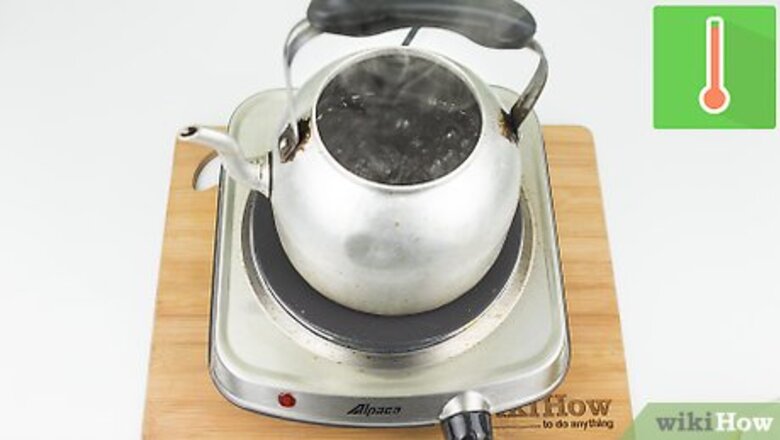
views
Warming the Sake
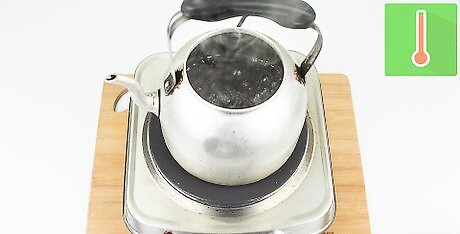
Boil the water. Many sake varieties are served warm. Instead of warming the sake directly, it's best to heat the ceramic container holding the sake in hot water. Fill a kettle with water and bring it to a boil. Alternatively, you can fill a saucepan with water and bring it to a boil over medium heat. Some sake varieties are actually served chilled rather than warmed. These varieties, which include ginjo, daiginjo, junmai, and namazake, should be served between 40 °F (4 °C) and 50 °F (10 °C). Serve these directly from the refrigerator.
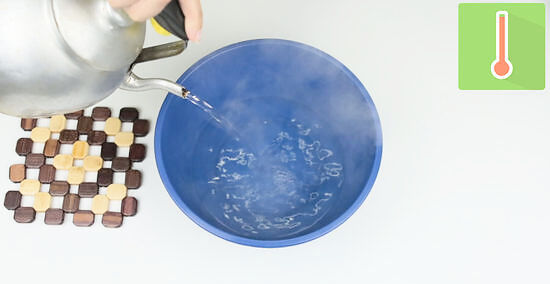
Fill a bowl with the boiling water. When the water has boiled, pour it into a medium-sized glass, metal, or ceramic bowl. Don't use a plastic bowl, as the hot water could melt it. Only fill the bowl halfway, as you don't want it to overflow when you add the ceramic container. If you used a saucepan to boil the water, remove the saucepan from heat and leave the water in the pan.
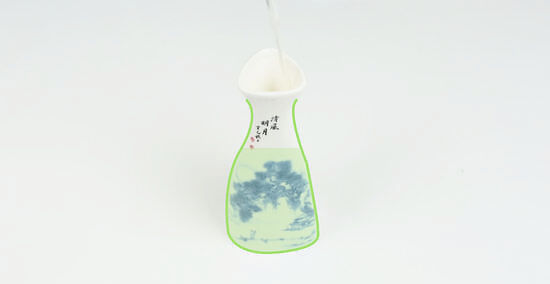
Fill the tokkuri. A tokkuri is a ceramic vessel that's often used for serving sake. Open the bottle of sake and pour it into the tokkuri. Fill the tokkuri, but leave some space at the top so you can move and pour the sake without spilling.
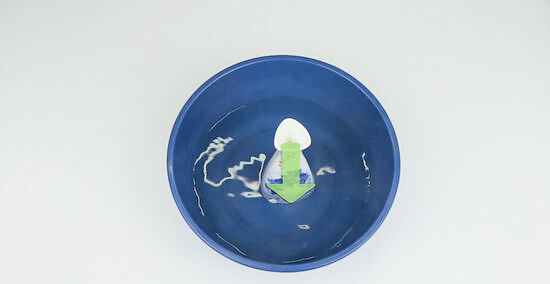
Warm the sake in the bowl of boiling water. Place the filled tokkuri into the bowl or saucepan of boiling water. Leave the tokkuri in the hot water bath until the temperature of the sake increases to about 104 °F (40 °C). This generally takes about two to four minutes. You can use a thermometer to keep an eye on the sake's temperature as it sits in the hot water. Sake shouldn't be served hot, as this will cause the alcohol to burn off and will ruin the drink's delicate flavors. Sake that's heated should only ever be warmed slightly.
Pouring and Serving Sake
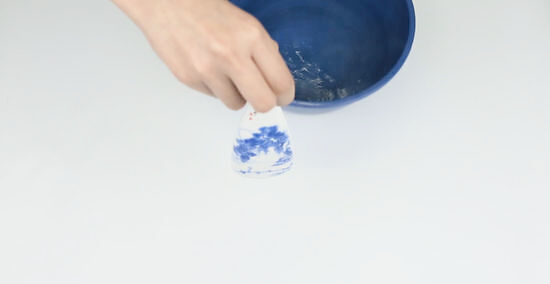
Remove the sake from the water. When the sake has reach the right temperature, remove the tokkuri from the hot water bath. Dry the outside of the tokkuri with a towel.
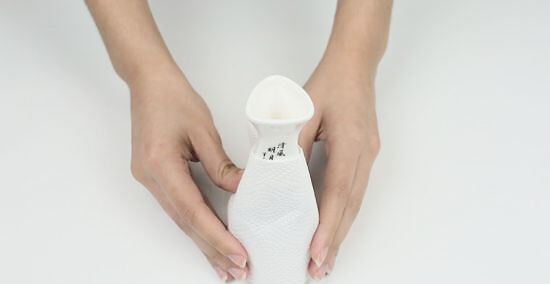
Wrap a napkin around the tokkuri. This will help you to catch any sake spills. You can wrap the outside of the tokkuri with a clean napkin or small tea towel. For sake that's being served chilled, remove the bottle from the refrigerator and pour the chilled sake into the tokkuri.
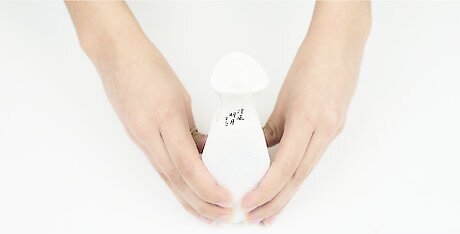
Hold the tokkuri with both hands. Grasp the tokkuri delicately by wrapping one hand around each side of the vessel. Your palms should be facing slightly downward rather than toward each other. Don't hold the tokkuri too tightly. In Japanese culture, it is impolite to hold the tokkuri and pour sake with one hand when you're in a formal situation.
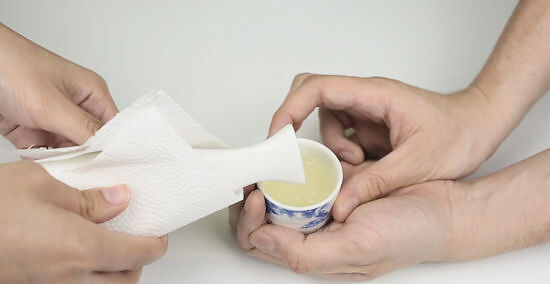
Fill your guests' or friends' glasses. Go around to each of your guests (or friends, family, or coworkers if you're out at a bar) and fill the empty glasses with sake. Fill each glass as much as possible, as this is a sign of generosity. Make sure you continue holding the tokkuri with both hands as you pour. As the night goes on, refill the glasses as they become empty.
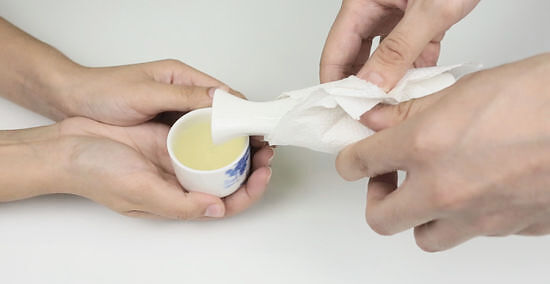
Let a guest or friend fill your glass. In Japan, tejaku is the practice of filling your own glass, and it's considered rude. Whether you're at home, a guest at somebody else's home, or out at a restaurant or bar, don't fill your own glass. It is the responsibility of a friend, guest, or somebody you're with to fill your glass. The only time it's acceptable to pour your own sake is when you're alone, or in very informal situations with close friends or family.

Lift the ochoko off the table when your drink is poured. When somebody pours your drink, hold the cup with both hands and raise it off the table. Hold the cup slightly forward toward the person pouring. To be polite, pay attention to the person who is pouring, and don't carry on a conversation or be otherwise distracted while your drink is being poured.
Drinking Sake
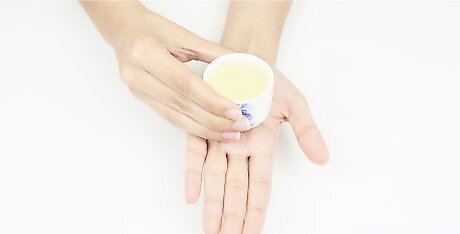
Hold the ochoko with two hands. Sake is often served in a small ceramic cup called an ochoko. Whenever you're holding the ochoko, hold the cup with your right hand and support the bottom of it with the palm of your left hand. Hold the cup this way even when you're drinking.

Don't drink until everybody has a full ochoko. It is rude to drink before everybody has been served and said cheers. Once everybody has a full cup, you can all say “kanpai.”

Say “kanpai” before drinking. Kanpai means “dry glass,” and it's a celebratory way to say cheers. Hold the sake glass in one hand and gently touch ochokos with the people around you as you say kanpai. When you've finished saying kanpai, bring your ochoko back in front of you and hold it again with two hands.

Drink the sake in small sips. Sake is fairly strong, and while it was once expected that you'd drink the glass in a single go, it's now perfectly acceptable to drink it slowly, sip by sip. This is especially important if you don't want to drink too much, because your hosts or friends will refill your glass as soon as it's empty. Don't put down your ochoko until the sake is done.

Pair bold sake with rich foods. Sake can be served with a variety of different foods and courses. Like wine, different sake varieties have different flavor profiles, and will pair better with certain foods. A bold sake like "daiginjo" has strong earthy flavors, and this pairs well with: Roasted chicken Tempura Chocolate Barbecued foods

Pair fruity sake with spicy or fatty foods. Fruity sakes like junmai and ginjo have aromas of fruits like peaches. These types of sakes pair well with spicy foods, fatty meats, and a variety of vegetables. Try pairing fruity sakes with: Spicy tuna tartare Fish Pork Salads
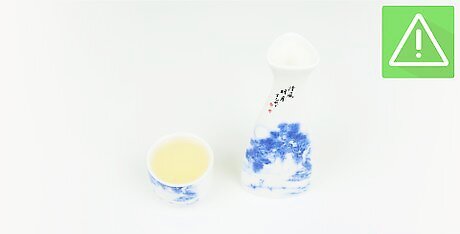
Finish an open bottle of sake within a few hours. Once you open a bottle of sake, it's best consumed within a few hours. This is because open sake will oxidize, and this will affect the flavor of the beverage. Open bottles of sake that aren't finished should be stored in the refrigerator and consumed within two days.
















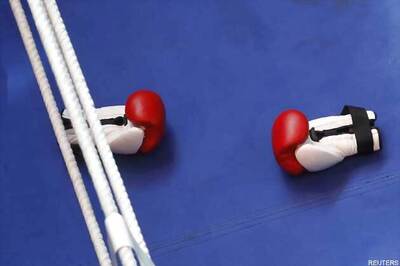



Comments
0 comment